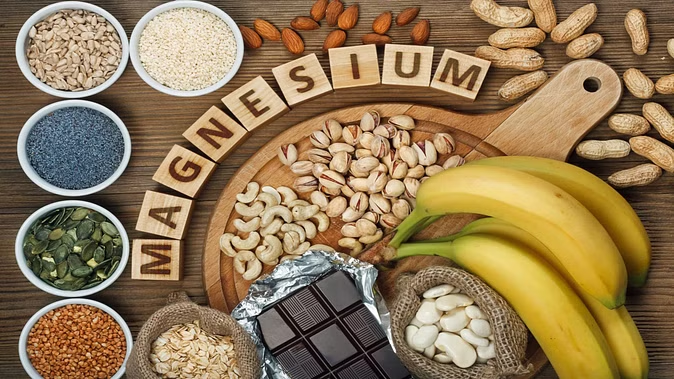It is advisable to consume a healthy and nutritious diet for better nutrition of the body, good health, and prevention of diseases. Dietitians say that colorful vegetables and fruits along with whole grains and dairy products must be included in the diet.

With this type of diet, most of the vitamins and minerals required by the body are obtained. At the same time, people whose diet is not of quality are at risk of many types of diseases.
Our body gives us signals from time to time as to which vitamins and minerals you may be deficient in. If we are aware of it, we can identify it easily. With the help of timely attention to symptoms, improvement in diet, and timely medical advice, you can also prevent serious health problems.
Proper nutrition is important for a healthy body
Whenever there is talk of proper nutrition, Vitamin C and D are discussed the most. However, this is not enough for the overall development of the body and reducing the risk of diseases. You also need a regular intake of minerals like calcium, phosphorus, potassium, sodium, chloride, and magnesium in your diet. Along with keeping bones strong, these nutrients are considered to play an important role in keeping nerves healthy, controlling blood pressure, and improving eyesight.
Let us know how we can find out which vitamins and nutrients you are deficient in.
How to recognize zinc deficiency?
Zinc plays an important role in many ways in our body. A deficiency of this nutrient can cause skin changes that first look like eczema. If it does not improve with moisturizer, steroid cream, or lotion, then it is considered a sign that you may have zinc deficiency.
Apart from this, people with zinc deficiency may also experience symptoms like hair loss, frequent infections, wounds taking a long time to heal and diarrhea.

Magnesium causes muscle problems
Magnesium is important for many processes in the body, including maintaining muscle and nerve function, blood sugar levels, and blood pressure. The initial symptoms of magnesium deficiency include loss of appetite, nausea, vomiting, fatigue, and weakness. As magnesium deficiency increases, you may experience numbness, tingling, muscle contractions and cramps, personality changes, and abnormal heart rhythms.
Sodium deficiency
You must have often heard that to keep the body healthy, especially to control blood pressure, the intake of sodium items should be reduced. But do you know that sodium is an essential nutrient that is necessary to maintain the balance of fluids in the body and for the smooth functioning of muscles and nerves? People who are deficient in sodium may suffer from hyponatremia, which can cause problems like nausea and vomiting, headache, muscle weakness, low blood pressure, and dizziness when standing.
(PC: ISTOCK)










